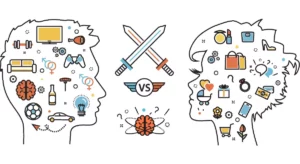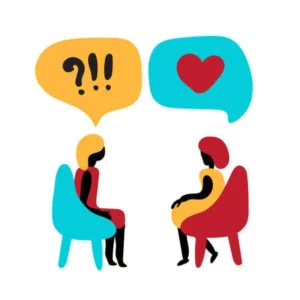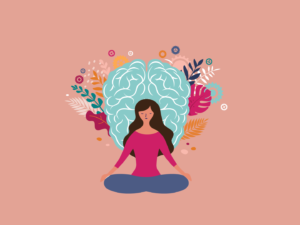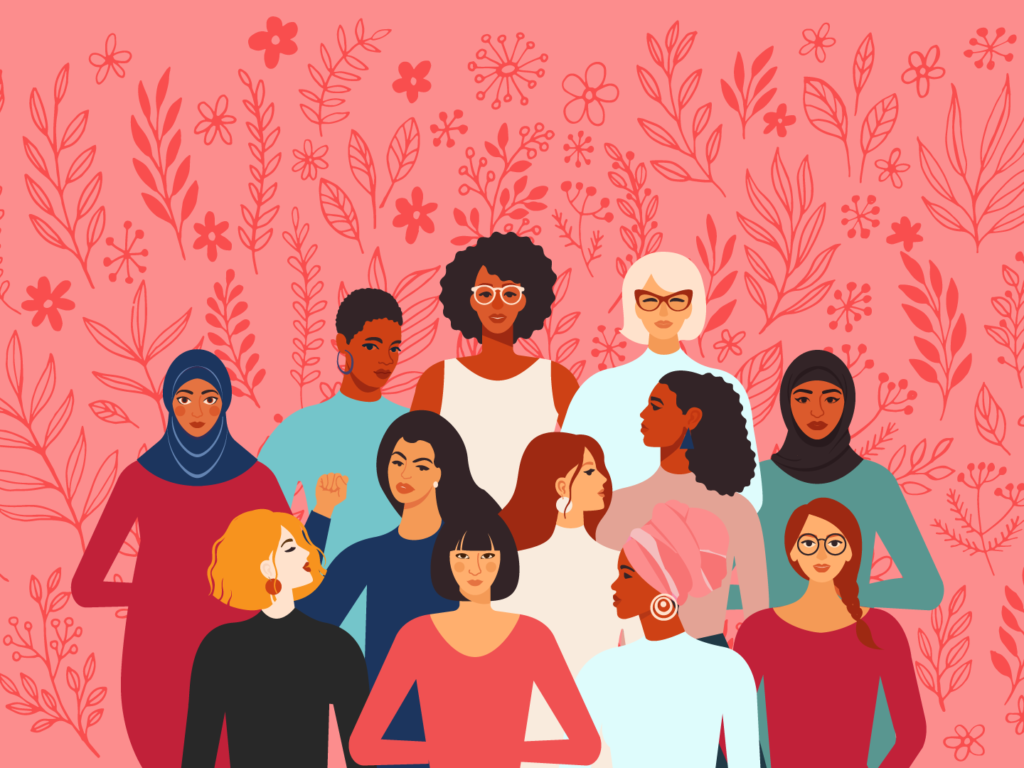Women have unique needs that must be addressed in therapy. Many times, the traditional approach to counseling does not work well for women. In this blog post, we will discuss some of the specific issues that women face and how to address them in therapy. We will also look at some of the differences between men and women when it comes to mental health and counseling. If you are a woman who is seeking help, it is important to find a therapist who understands these issues and can provide the necessary support.
Contents
What Are The Unique Challenges Faced By Women?
 Being a woman in today’s world comes with its own unique set of challenges. Women are juggling more roles than ever before. They are expected to be perfect mothers, wives, employees, and homemakers. This can be a lot to handle, and it can take a toll on their mental health. There are a number of factors that contribute to the unique challenges faced by women.
Being a woman in today’s world comes with its own unique set of challenges. Women are juggling more roles than ever before. They are expected to be perfect mothers, wives, employees, and homemakers. This can be a lot to handle, and it can take a toll on their mental health. There are a number of factors that contribute to the unique challenges faced by women.
- One is the pressure to be perfect. Women are bombarded with images of perfect mothers, wives, and employees. They are told that they need to have it all together in order to be successful. This can create a lot of pressure and stress.
- In addition, women are more likely to be the primary caregivers for their children and aging parents. This can also lead to a lot of stress and anxiety.
- Another factor that contributes to the unique challenges faced by women is sexism. Women still face discrimination in the workplace, in politics, and in society as a whole. This can make it difficult for them to succeed and feel good about themselves.
- Long-run systems such as patriarchy, pay gap, denial of bodily autonomy, and the objectification of women’s bodies also create unique challenges for females. This is because these systems are entrenched and difficult to change. They can lead to a feeling of powerlessness and hopelessness.
- Even in the 21st century, basic human rights for women are not being met in some parts of the world. This includes access to education, healthcare, and freedom from violence. All of these factors can contribute to mental health issues in women.
- There is a tendency to overlook women from marginalized or oppressed communities. This includes LGBTQ+ women, women of color, and immigrant women. These women face additional challenges that must be taken into account in therapy.
- It is also an alarmingly disturbing fact that women are a more likely target of communal violence such as robbery, rape, assault, human trafficking, and forced marriage. This can be a major source of trauma for women.
- Lastly, women are still at the receiving end of many societal double standards. For example, a woman who is assertive and confident may be seen as pushy or bossy, while a man in the same position is seen as a leader. This gender-based hypocrisy is an unfortunate reality that is more prevalent than we might realize.
All of these factors must be taken into account when providing therapy for women. It is important to understand the unique challenges. Moreover, it is rather notable that a number of successful women in a variety of fields attribute their success to therapy. For example, the musician Alanis Morissette, the actress Lena Dunham, and the author Zadie Smith have all spoken openly about how therapy has helped them to achieve their goals and live happier lives.
There is a need for more research on the unique challenges faced by women. This will help to develop better therapies and treatments that are specifically tailored to their needs. In the meantime, it is important for women to find a therapist who understands these issues and can provide the necessary support.
How Is Therapy Different For Women Than Men?
Therapy is a good option for anyone who is struggling with mental health issues. However, it is important to keep in mind that therapy can be different for women than it is for men. This is because of the unique challenges that women face. Some of the differences include the following facts.

- It is stereotypical, yet a real fact that women are more likely to talk about their feelings and emotions. They are also more likely to seek out help when they are struggling. This is in contrast to men, who are more likely to bottle up their emotions and try to deal with them on their own.
- Moreover, women tend to be more relationship-oriented than men. They place a high value on close, intimate relationships and often turn to their relationships for support. Therefore, when women are going through a tough time, they may seek out counseling in order to work through their issues with someone who is objective and unbiased.
- Women also deal with unique stressors that men do not usually face. For example, women are more likely to go through traumatic events and reinforced gender stereotypes than men. This is a very real problem that can lead to anxiety, depression, and even physical health problems.
- Another very obvious difference stems from the biological differences in men and women. Women are prone to physiological issues such as menstruation, polycystic ovary syndrome (PCOS), premenstrual dysphoric disorder (PMDD), menopause, endometriosis, and postpartum issues. Moreover, studies suggest that women’s brain composition is different from men’s, which may account for some of the differences in how they process emotions and respond to stress.
- Lastly, the major distinction also lies in the fact that women are socialized to be caretakers, which can lead to them neglecting their own needs. They may feel guilty for taking time out for themselves or placing their own needs above others. This is a common issue that many women face.
These differences make it clear that therapy for women must be different from therapy for men. It is important to take into account the unique challenges that women face. This will help to ensure that they get the most out of therapy and are able to work through their issues in a safe and effective way.
Which Psychological Issues Do Women Face?
When we think of mental health issues, the first thought that comes to mind is probably depression. According to the National Alliance on Mental Illness, women are almost twice as likely as men to experience depression in their lifetime. But depression is not the only mental health issue that women face. Women can suffer from a variety of psychological disorders. These can range from alarmingly dangerous ones to more subtle ones. No matter the intensity, it is a truth that psychological disorders affect women differently than men. However, the most typically notable and diagnosed disorders in women include the following.

- Clinical depression
- Anxiety disorders
- Obsessive-compulsive disorder
- Eating disorders
- Post-traumatic stress disorder
- Personality disorders
- Neurological disorders
- Sleep disorders
- Cognitive issues
- Sexual dysfunction
- Learning disabilities
- Psychosis
- Schizophrenia
- Addictions
- Amnesia
These are only a few categories and types of psychological disorders from which women can suffer. The prevalence of each varies depending on factors such as age, race, and socioeconomic status. The important part to remember is that all of these disorders can be as damaging and debilitating for women as they are for men. It is vital that we, as a society, begin to have more open and honest discussions about mental health and therapy for women.
Which Therapy Types Work For Women?
Fortunately, there have been a lot of advancements and research in the field of therapy in recent years. This has led to the development of different types of therapy that can be tailored to the unique needs of women. Here are a few examples.
Cognitive behavioral therapy
This is perhaps referred to as the “gold standard” when it comes to therapy. CBT has been shown to be an effective treatment for a variety of mental health issues, including depression, anxiety, eating disorders, and post-traumatic stress disorder. This type of therapy focuses on helping women to change the negative thoughts and behaviors that are causing them distress. It works through a process of identifying, challenging, and changing these thoughts and behaviors.
Psychodynamic therapy
Another widely celebrated, practiced, and researched type of therapy is psychodynamic therapy. This type of therapy focuses on helping women to understand the root causes of their issues. It emphasizes the importance of the past in shaping our present experiences and behaviors. This type of therapy can be particularly helpful for women who have experienced trauma or abuse in their lives.
Moreover, this therapy approach has additional benefits. These include improved communication and relationships, increased self-awareness, and greater insight into one’s thoughts and behaviors.
Client-centered therapy
 This type of therapy dates back to the 1950s and was developed by Carl Rogers. It is a humanistic type of therapy that focuses on the client’s experience in the present moment. The therapist works to create a safe and non-judgmental environment in which the client can explore her thoughts and feelings without fear of judgment or criticism. This type of therapy can be helpful for women who want to explore their thoughts and feelings in a safe and supportive environment.
This type of therapy dates back to the 1950s and was developed by Carl Rogers. It is a humanistic type of therapy that focuses on the client’s experience in the present moment. The therapist works to create a safe and non-judgmental environment in which the client can explore her thoughts and feelings without fear of judgment or criticism. This type of therapy can be helpful for women who want to explore their thoughts and feelings in a safe and supportive environment.
It lays emphasis on the client’s subjective experience and encourages them to be more self-aware. This type of therapy can help women to understand themselves better and make positive changes in their lives.
Family therapy
This is a type of therapy that focuses on the family unit as a whole, rather than on the individual. It recognizes that our families play a significant role in shaping our lives and our behaviors. Family therapy can be helpful for women who want to improve their relationships with their families. It can also be helpful for families who are struggling to cope with a member’s mental health issue. This type of therapy can help to improve communication, resolve conflict, and build stronger relationships.
Emotion-focused therapy
As the name may be suggestive, emotion-focused therapy focuses on helping women to understand and cope with their emotions. It is based on the premise that our emotions play a significant role in our lives and can often be the root cause of our mental health issues. This type of therapy can help women to identify and understand their emotions, as well as develop healthy coping mechanisms for dealing with any issues.
Interpersonal therapy
This type of therapy is designed to help women improve their relationships with others. It can be helpful for those who are struggling with communication issues, conflict resolution, or intimacy problems. This type of therapy focuses on helping women to understand the patterns in their relationships and to develop new skills for dealing with conflict.
For example, a woman who is struggling with communication in her marriage may learn how to express her needs in a more effective way. This can help to improve the overall quality of the relationship.
Holistic therapy
 Holistic as a word means “whole.” And so, holistic therapy takes a “whole person” approach to treatment. This type of therapy recognizes that our physical, mental, and emotional health are all interconnected. Holistic therapies may include natural approaches such as yoga, meditation, massage, and acupuncture. These therapies can help to reduce stress and promote relaxation.
Holistic as a word means “whole.” And so, holistic therapy takes a “whole person” approach to treatment. This type of therapy recognizes that our physical, mental, and emotional health are all interconnected. Holistic therapies may include natural approaches such as yoga, meditation, massage, and acupuncture. These therapies can help to reduce stress and promote relaxation.
The main objective of holistic therapy is to help clients achieve a state of balance in their lives. It focuses on treating the whole person, rather than just the symptoms of their mental health issue.
Group therapy
 This approach to therapeutic intervention is perhaps the most empowering and supportive one for women. Group therapy provides a space for women to come together and share their experiences with others who understand what they’re going through. It can be helpful for women who want to feel less alone in their struggles. It can also be helpful for women who want to learn from others and gain new perspectives. Group therapy can provide support, understanding, and empowerment. It can help women to feel more connected and less isolated.
This approach to therapeutic intervention is perhaps the most empowering and supportive one for women. Group therapy provides a space for women to come together and share their experiences with others who understand what they’re going through. It can be helpful for women who want to feel less alone in their struggles. It can also be helpful for women who want to learn from others and gain new perspectives. Group therapy can provide support, understanding, and empowerment. It can help women to feel more connected and less isolated.
Feminist therapy
This might be a new or shocking term for some, but it’s an important one. Feminist therapy is a type of therapy that takes a feminist approach to treatment. This means that it recognizes the unique experiences and needs of women. It also acknowledges the ways in which women have been oppressed throughout history.
Feminist therapy can be helpful for women who want to explore their identity, as well as their place in the world. It can also be helpful for women who want to work through issues of power and control. Feminist therapy may not be for everyone, but it is an important option for those who have interest in exploring these topics.
Expressive art therapy
 This is a type of therapy that uses art as a means of expression. It can be helpful for women who want to explore their thoughts and feelings but may feel uncomfortable doing so verbally. Art therapy provides a creative outlet for self-expression and can be used to help women explore their emotions. It uses medium such as art, drama, music, and dance to help women express themselves.
This is a type of therapy that uses art as a means of expression. It can be helpful for women who want to explore their thoughts and feelings but may feel uncomfortable doing so verbally. Art therapy provides a creative outlet for self-expression and can be used to help women explore their emotions. It uses medium such as art, drama, music, and dance to help women express themselves.
This type of therapy can help women to understand themselves better and make positive changes in their lives. It also offers a supportive environment where women can share their experiences with others.
Clinical hypnosis
Clinical hypnosis, also popular by the name hypnotherapy, is a new advancement in the field of mental health. It is a type of therapy that uses hypnosis to help people change their behavior. It is based on the premise that our thoughts and emotions play a significant role in our lives and can often be the root cause of our mental health issues.
This type of therapy works by first inducing a state of relaxation in the patient. Once the patient is relaxed, the therapist will then begin to talk to them in a soothing and calming voice. The therapist will help the patient to focus their thoughts on positive things and redirect their thinking away from any negative thoughts or emotions.
The goal of clinical hypnosis is to help the patient to reach a state of deep relaxation where they are more open to suggestions. Once the patient is in this state, the therapist can then help them to change their negative thoughts and behaviors.
Mindfulness-based interventions
 At last, mindfulness is a form of therapy that is based on the principle of mindfulness. Mindfulness is the practice of being present in the moment and paying attention to your thoughts, feelings, and sensations without judgment.
At last, mindfulness is a form of therapy that is based on the principle of mindfulness. Mindfulness is the practice of being present in the moment and paying attention to your thoughts, feelings, and sensations without judgment.
Mindfulness-based interventions are a type of therapy that uses mindfulness techniques to help people manage their mental health. These interventions can help people to reduce stress, anxiety, and depression. They can also help people to improve their sleep and concentration.
Mindfulness-based interventions can be used to help people with a variety of mental health issues. These interventions are often used in combination with other types of therapies.
These are just a few of the many different types of therapy that are available to women. Therapy for women is vital. Women face unique psychological challenges that must be addressed in order to live healthy and fulfilling lives. Thankfully, there are a variety of therapy types that can be tailored to the specific needs of women.
When making the decision of going to therapy, it is not only about the therapy type but also about the therapist. Finding the right therapist is a crucial step to have an effective and comfortable experience. If your therapist is not a good fit for you, do not be afraid to switch to someone else.
The most important thing is that you find a therapist who you feel comfortable with and who you feel can help you address the issues that you are facing. Remember, therapy is a journey and it takes time. Be patient with yourself and trust the process. You deserve to live a happy and healthy life.
Conclusion
Conclusively, therapy for women is a vital step in ensuring that they receive the care and treatment they need. It is important to understand the unique challenges that women face and how best to address them. There are many different types of therapy available, so it is important to find one that fits your needs. Do not be afraid to ask for help! Your mental health is just as important as your physical health. If you are a woman struggling with mental health issues, please reach out for help! There are many resources available to you.
If you or someone you know is looking for psychological help, Therapy Mantra is here for you. We are the leading providers of online therapy and counseling. Our team of highly trained and experienced therapists can provide assistance at the most affordable rates. Contact us today to learn more about our services. You may also visit our website to book an online therapy session or download our free Android or iOS app for more information.


